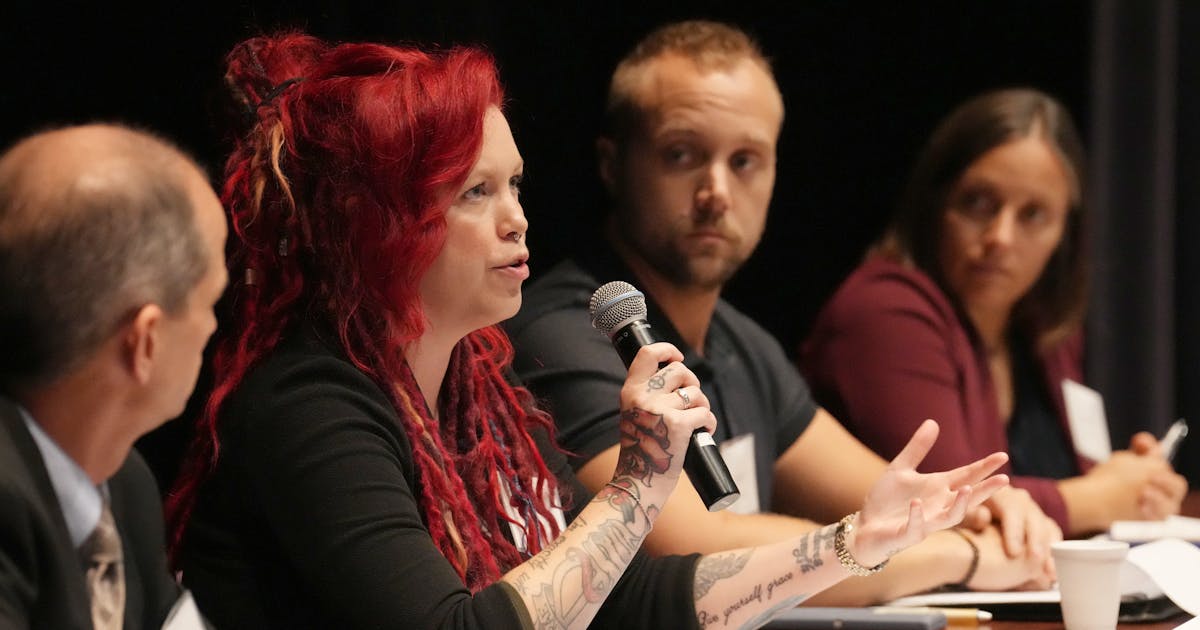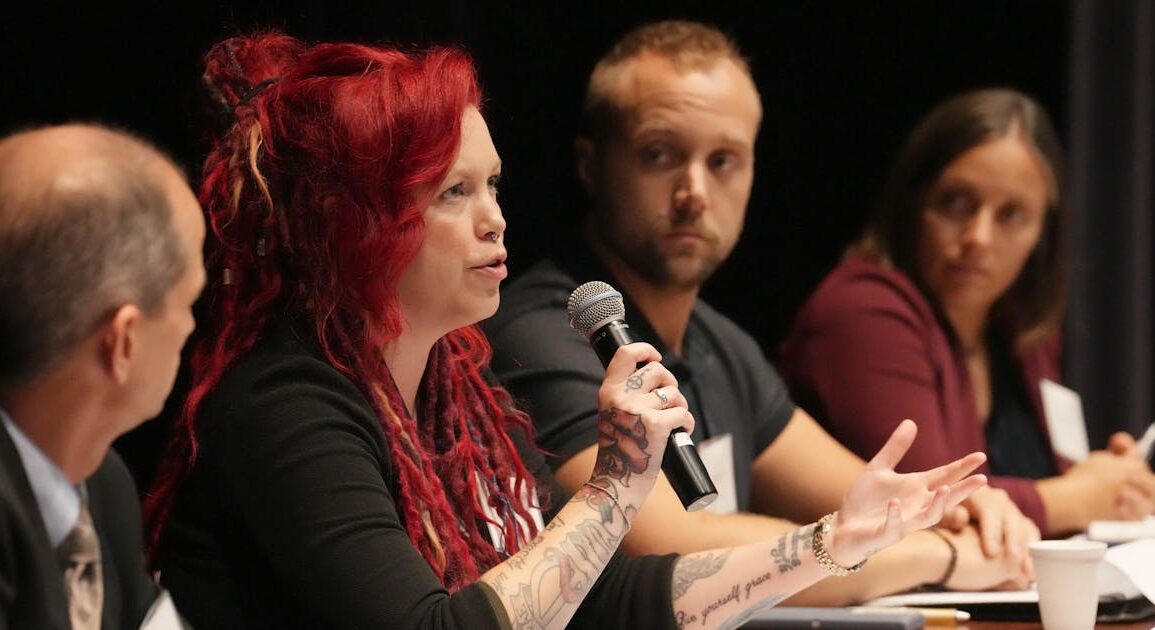
People who identify as LGBTQ are disproportionately likely to be victims of violent crime, but a history of harassment and discrimination by law enforcement and the legal system contributes to their being less likely to report crimes or trust investigators.
In an effort to start shifting that dynamic in Minnesota, about 30 prosecutors, victim advocates and law enforcement professionals gathered Friday in an auditorium at the Wellstone Center on St. Paul’s West Side for training on working with crime victims who are members of LGBTQ communities.
“There’s a lot of work that needs to happen,” said Ramsey County Attorney John Choi, whose office organized the training. “At the end of the day, we can’t serve communities unless we are grounded in experiences and get ourselves into the shoes of others to understand all the various things that we need to do to do our jobs better.”
While some blatant forms of discrimination, such as police raids of gay bars, are a thing of the past, there remains societal hostility toward LGBTQ people, said Chief Judge Victoria Shackelford of Michigan’s 23rd District Court, a speaker at the training event. When it comes to public safety professionals and LGBTQ communities, she said, relations remain strained not only because of the history but also because of a lack of literacy surrounding issues like gender identity and pronouns.
“You have a duty to protect the citizens in your county, your state, whatever your jurisdiction might be. … You don’t get to pick people that you like to help,” Shackelford told the audience. “Your job is to solve crime, to help victims of crime and if you can’t address someone by their preferred name and gender, good luck, you’re not going to get anything done.”
In Minnesota, some law enforcement agencies, including the Minneapolis and St. Paul police departments, have enacted policies that govern officer interactions with trans people, including using preferred names and pronouns.
St. Paul officer Travis Lenander, another speaker at the training, said St. Paul is starting an LGBTQ advisory committee and looking into creating something like Seattle’s Safe Place program. The program, which has been replicated in other communities, is a partnership between businesses and police. Businesses advertise that they are a safe place for LGBTQ people to go after a bias or hate crime incident, and also help victims reach 911.
Another local effort to respond to communities that may not want to interact with law enforcement is an alternative reporting program for sexual assault in Ramsey County, which allows victims to report their assault through a victim advocate instead of a police officer, said Megan Rae, an SOS Sexual Violence Services legal advocate and anti-violence advocate with the county. The program allows victims to decide how far they want to take the report in the criminal justice system.
Assistant County Attorney Mark Haase said change needs to go beyond policies. While Minnesota has passed laws protecting LGBTQ people, he’s heard that many find the day-to-day reality different.
“Just because we have better policies here doesn’t mean that this is not an issue,” he said.
Improving the relationship between law enforcement and LGBTQ community members — particularly LGBTQ people of color — takes effort on the part of law enforcement and legal professionals, said Julisa Abad, director of transgender outreach and advocacy at the Fair Michigan Foundation and a speaker at the training.
“Get out in community and meet us where we are at, so that we can make effective change,” she said, urging law enforcement to visit LGBTQ organizations, talk to sex workers and have uncomfortable conversations.
“It is not my responsibility to educate the world,” Abad said. “It’s police’s responsibility to get out there as well and correct the damage that they’ve historically done to my community, and that’s not going to happen if you guys do not meet us where we are at.”
Ultimately, building trust in LGBTQ communities not only helps solve crimes within those communities but also in reporting and solving crimes overall, Abad said.
“It’s just simple tweaks and words that let us know that you’re culturally competent, affirming and are willing to help us,” she said.
This post was originally published on this site be sure to check out more of their content.







